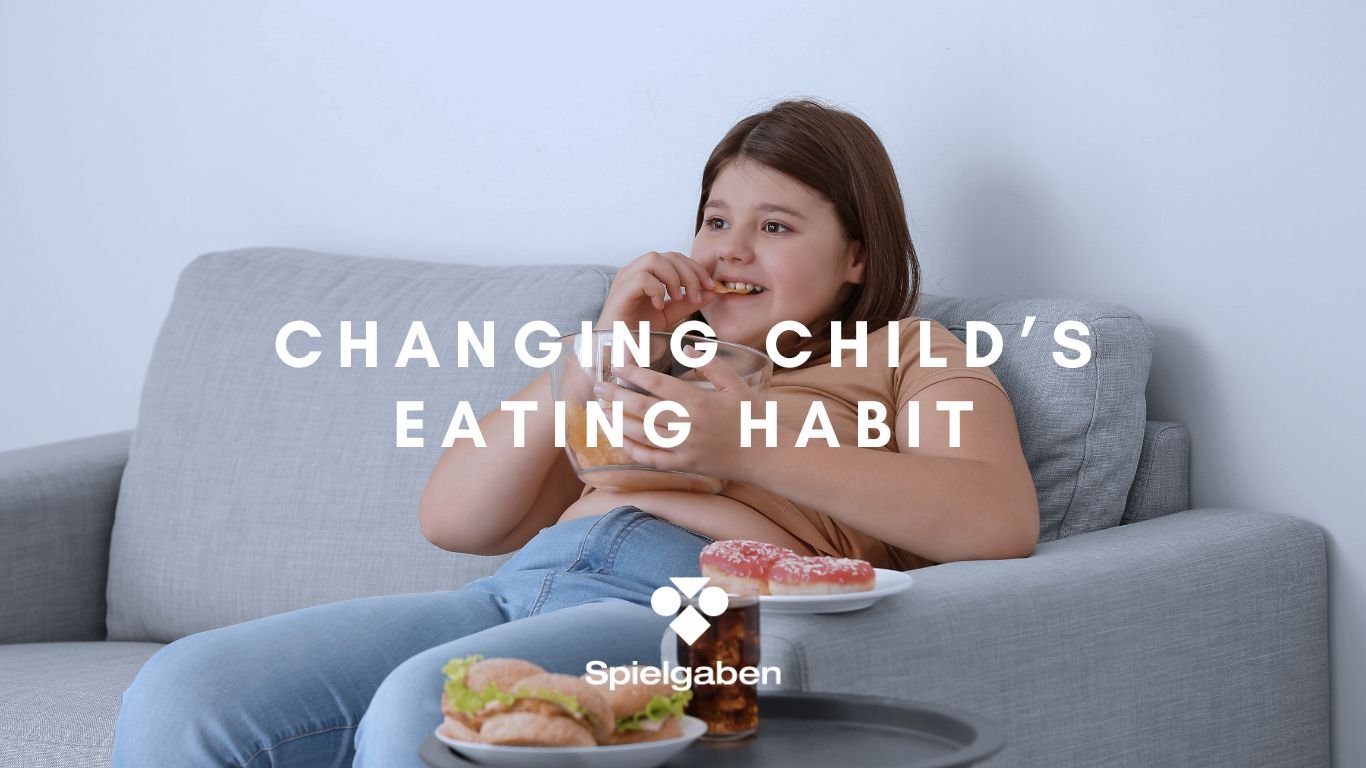From Belly to Brain: The Secret to Raising Healthy, Resilient Kids
Parenting little ones is like being the captain of a tiny, unpredictable ship. One moment, everything’s smooth sailing, and the next, you’re navigating a storm of runny noses, mood swings, and bellyaches. As parents, we instinctively know when something’s off, even if the doctor tells us, “It’s just a phase.” Sure, kids go through phases, but what if these symptoms – digestive issues, sleep problems, irritability – point to something bigger than a rough patch?
According to the World Health Organization (WHO),
- One in five children suffers from eczema.
- One in ten has asthma.
- One in ten exhibits behavioral issues.
- One in ten struggles with anxiety, and for teens aged 13-18, that jumps to one in three.
- One in 36 children is diagnosed with autism.
If this is the “new normal,” something’s wrong. Fortunately, we’ve got options. Enter integrative pediatrics, a holistic approach that’s all about the whole child. Instead of focusing only on symptoms, integrative pediatrics looks at building resilience – the ability for kids to bounce back physically, mentally, and socially, no matter what life throws at them.
Resilience Starts with Belly
Spoiler alert: It all begins in the belly! The gut might not be the first place you think of when it comes to your child’s health, but it’s where the magic happens. Your child’s gut microbiome is home to more than 100 trillion microscopic organisms, which sounds like the beginning of a sci-fi movie but is actually crucial for digestion, immunity, mood, and even sleep. Yes, the gut is behind the scenes running the show.
When your child’s gut is healthy, their body works like a well-oiled machine. But when it’s out of balance – often thanks to antibiotics, poor diet, or stress – things can go awry. Think reflux, constipation, eczema, asthma, and even behavioral issues. These are often dismissed as “normal” childhood conditions, but they’re really signals that something’s off in the gut.
The Gut-Immune System Connection
Up to 80% of the immune system lives in the gut, nestled in a part called the gut-associated lymphoid tissue (GALT). When everything’s working smoothly, the GALT knows who’s a friend (good food, safe germs) and who’s a foe (allergens, bad bacteria). But when the microbiome is out of whack, the GALT gets confused. Sometimes it lets too many foes in, leading to constant colds or skin issues like eczema. Other times, it attacks the good guys, resulting in autoimmune conditions.
The Gut-Brain Superhighway
Ever notice how your child’s tummy ache coincides with them being cranky or irritable? The gut-brain connection is real, and it’s powered by the vagus nerve – a two-way communication system between the gut and the brain. Fun fact: 95% of serotonin (the feel-good chemical) is produced in the gut. So when the gut’s happy, chances are your little one is, too. A healthy gut can improve focus, regulate sleep, and even help kids bounce back faster from stress.
Practical Tips: How to Build a Healthy Gut
Ready to give your child’s gut a makeover? Don’t worry, it doesn’t involve any complex surgeries or magic potions. Just small, everyday changes can make a world of difference. Here are a few practical steps to support your child’s gut and overall health:
1. Feed the Gut with a Rainbow
You’ve probably heard it before, but feeding your child a variety of colorful fruits and veggies is the quickest way to a happy gut. Each color represents different nutrients and phytonutrients – plant compounds that help reduce inflammation and support the immune system. Challenge your child to pick at least three different colors on their plate at each meal. Make it fun: give superhero names to each food (“Green Goblin Broccoli” or “Flash Carrots”).
2. Get Friendly with Fermented Foods
Fermented foods are teeming with good bacteria that help boost the gut microbiome. Start small with kid-friendly options like yogurt (without the sugar overload), kefir, or sauerkraut. If your child turns their nose up at the idea of fermented foods, you could try sneaking them into smoothies, or serve a small bite of something fermented with a favorite dish.
3. Handle Picky Eaters with “Same Yum, Different Fun”
For parents with picky eaters, you know it’s not as simple as “just eat it.” Instead, try swapping their go-to comfort foods for healthier alternatives. If they love macaroni and cheese, switch to a homemade version with sweet potato or cauliflower mixed into the sauce. The “same yum, different fun” approach helps transition them to nutrient-dense meals without a fight.
4. Stress Relief: Activate the Vagus Nerve
The vagus nerve, which links the gut to the brain, plays a major role in keeping your child’s heart rate and stress levels in check. Stress can upset the gut’s balance, so help your child unwind with simple relaxation exercises. Try “belly breathing” – have them put a hand on their belly, take a deep breath, and watch their hand rise. Or try square breathing: inhale for 4 counts, hold for 4, exhale for 4, and hold again for 4. Not only will this help with stress, but it’s also a great tool for those pre-bedtime wiggles.
5. Hydration is Key
A hydrated gut is a happy gut. Water helps keep digestion moving smoothly and flushes out harmful bacteria. If your child isn’t keen on plain water, try offering fruit-infused water, coconut water, or even sparkling water. For some fun, create a “water-tasting” game – let your child sample different types of water and choose their favorite.
6. Encourage Movement Every Day
Physical activity doesn’t just tire your kids out for bedtime (though that’s a plus!); it also supports gut health. Aim for at least 60 minutes of movement each day, but keep it fun. Whether it’s scooter races, bike rides, or dancing to their favorite songs, find activities they love and make it part of the daily routine.
Looking at Your Child’s Illness Holistically
Even the healthiest gut can’t prevent every illness. Kids are going to get sick – it’s how their immune systems grow stronger. The key is not avoiding sickness altogether but helping your child bounce back quickly. A resilient child recovers faster, and each recovery makes their immune system even stronger.
Before jumping straight to antibiotics, especially for minor infections, weigh your options. Antibiotics can be life-saving, but they also wipe out good gut bacteria along with the bad. If antibiotics are necessary, follow up with probiotics or fermented foods to help rebuild their microbiome.
Supporting Seasonal Allergies with a Gut-Friendly Approach
Allergies can make kids miserable, but addressing them holistically can provide relief while supporting overall gut health. Start by including foods high in antioxidants and omega-3 fatty acids (like wild-caught fish) in their diet, which can help reduce inflammation.
Consider adding quercetin – a natural antihistamine found in apples and grapes – along with vitamin C to ease allergy symptoms. Zinc and vitamin D are also key players in supporting the immune system and reducing allergy flare-ups.
Practical Allergy-Fighting Tips:
– Quercetin: Found in onions, apples, and berries, or available in supplement form, it helps reduce the body’s histamine response.
– Omega-3 Fatty Acids: Encourage wild-caught fish or consider a quality fish oil supplement to reduce the risk of asthma and other allergic reactions.
– Probiotics: Specific strains like *Lactobacillus rhamnosus* can reduce allergy severity. Talk to your pediatrician about the right probiotics for your child.
– Vitamin D: Optimal vitamin D levels are crucial for both immune function and allergy prevention. Get your child outside for at least 15 minutes of sunshine daily.
The Long Game: Consistency is Key
Making small, manageable changes over time can lead to huge improvements in your child’s health. Focus on the big three: diet, stress management, and regular activity. Each small step – whether it’s sneaking a few extra veggies onto their plate or squeezing in a quick breathing exercise – builds resilience, not just for today, but for a lifetime.
In the whirlwind of parenting, it’s easy to feel like you need to do *everything* at once. But remember, it’s not about perfection; it’s about progress. Take a deep breath (just like we teach the kids) and make one small change at a time. Because a healthy kid is a happy kid – and a happy kid is a happy family after all.













LEAVE A COMMENT